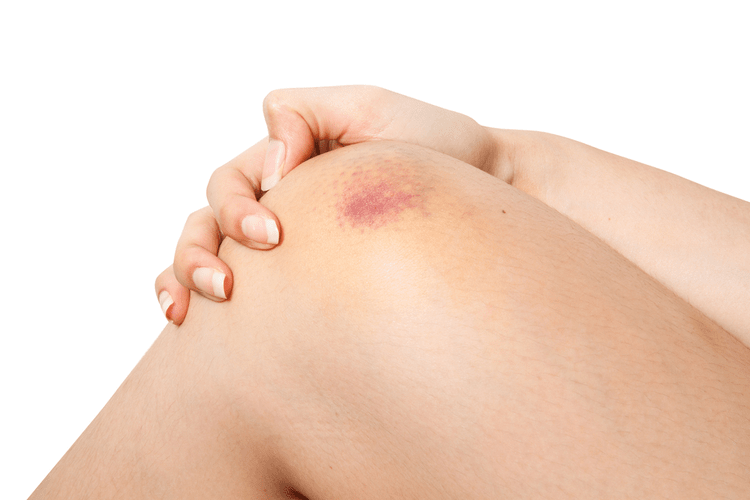Once the chemical interaction has taken place, the affected nerve cells are prompted to release a neurotransmitter called dopamine. Dopamine is a special molecule which is important in mediating feelings of pleasure that are rewarding to the user. It’s these sensations of reward that can kickstart and later reinforce a growing addiction, as the user continually seeks to repeat the behavior—in this case, heroin use—that lead to them feeling good. The speed and intense effects of the substance are the main contributors to its harmful nature. They are also factors that lead to the addictiveness of heroin. Continued use of heroin can cause devastation to both physical and mental health, and it is likely to culminate in a number of social and legal ramifications for the user.
While heroin is a much stronger opioid than its predecessor, it can also cause a number of serious side effects. These include a high risk of physical dependence, which may progress to addiction, or opioid use disorder, in some people. That’s why today’s medical professionals no longer use heroin. A medication called naloxone can block the effects of a heroin overdose if it’s used quickly.
Why Are More People Using Heroin?
The private use and possession of heroin is illegal in most countries of the world, although the drug may be used as a painkiller for terminal cancer patients and others who suffer severe pain. Most illegally distributed heroin comes from opium produced in the Middle East, Southeast Asia, and Mexico. At the start of the 21st century, the leading opium-producing countries included Afghanistan, Myanmar (Burma), and Laos. Heroin addiction first appeared in the early 20th century, and for several decades thereafter it was customarily confined to the marginal or criminal elements in Western societies.
By the mid-1920s, heroin production had been made illegal in many parts of the world. An illegal trade developed at that time between heroin labs in China (mostly in Shanghai and Tianjin) and other nations. The weakness of the government in China and conditions of civil war enabled heroin production to take root there. Chinese triad gangs eventually came to play a major role in the illicit heroin trade. While most people are aware that there is a problem with heroin abuse and addiction in the US, some people still don’t know what heroin actually is and why it is such a problem.
What to Do if You Think Someone Is Using Heroin
People who use heroin report feeling a “rush” (a surge of pleasure). And then they may feel other effects, such as a warm flushing of the skin, dry mouth, and a heavy feeling in the arms and legs. After these first effects, they will usually be drowsy for several hours, and their breathing will slow down. Some people mix heroin with crack cocaine, which is called “speedballing.” All these ways of taking heroin send it to the brain very quickly, which makes it highly addictive. If you or someone you know shows these signs, call 911 immediately.
As with most drug side effects, this release is only temporary — which leaves some people wanting more of the “good” feeling. Heroin addiction, also called opioid use disorder, is a disorder that involves changes in the brain and behavior as a result of heroin use. People with OUDs often require treatment to recover from heroin addiction. Treatment can include a combination of medication, therapy, and support groups. Heroin is a highly addictive drug that some people use for recreational purposes. It is an illegal substance that has no recognised medical use in the U.S.
Is heroin legal in the state of Oregon?
Heroin works similarly to other opioids by binding to the opioid receptors in the central nervous system (CNS), which consists of the brain and spinal cord. Heroin typically affects receptors responsible how long does heroin stay in your system for feelings of pain and pleasure, as well as those that affect heart rate, breathing, and sleep. A medicine called naloxone can treat a heroin (or other opioid) overdose if it is given in time.
- For both the mental and physical risks, it is ideal to stop heroin use before it becomes a long-term pattern.
- Some people may also experience withdrawal symptoms if they stop taking heroin suddenly.
- Then, for several hours, you feel as if the world has slowed down.
- Heroin is a highly addictive opioid drug, and its use has repercussions that extend far beyond the individual user.
To enhance the safety of detox, it’s best the person is medically supervised. Heroin is an opioid that originates from morphine, a substance derived from opium poppy plants. A person should speak with a healthcare professional if they are thinking of stopping using heroin.
How to get support
Diagnosing any kind of substance use disorder, including opioid use disorder, is done by a thorough examination and assessment by a psychiatrist or psychologist. In some states, a licensed drug and alcohol counselor may make the diagnosis. While it’s impossible to say who’s at risk for an opioid use https://ecosoberhouse.com/ disorder, there are factors that can raise the risk of developing a drug addiction. Sometimes opioid use disorder begins with legal drugs like painkillers that are prescribed after a surgery or some other injury. It’s an opioid, which binds to receptors in the brain to release the chemical dopamine.
- Heroin works similarly to other opioids by binding to the opioid receptors in the central nervous system (CNS), which consists of the brain and spinal cord.
- Anyone can administer Narcan, so you don’t need to have a medical license or medical training.
- After these first effects, they will usually be drowsy for several hours, and their breathing will slow down.
One of the strongest effects heroin has on the body is to decrease breathing. When the individual overdoses on the drug, it then leads breathing to slow so much – or even to stop – that the individual becomes unconscious and can die as a result. Some of the damage that results from heroin addiction can be reversed. However, the longer the drug has been used, the more damage results, and the less likely reversal is possible. For example, heart, liver, kidney, and lung damage may be able to improve but may not be entirely reversed after the drug is stopped. Brain damage and memory loss are often not reversible either.

